Social anxiety is a troubling disorder for both dogs and their owners. Some dogs experience nervousness or fear in situations that involve other dogs or people. It may happen when you take your dog to the park, crowded events, or the veterinarian. Shyness or trembling are signs of anxiety; aggression may also occur. This condition is easier to manage early in a dog's life, but there are strategies you can use to help an older dog cope with social stressors.
What Is Social Anxiety?
Social anxiety refers to a condition in which dogs fear people or other animals and have a heightened stress response to sights and sounds—particularly in unfamiliar environments. Depending on the dog, the level of anxiety in a social setting can be mild or extreme. It can cause a dog to behave in ways that are not normally observed when it's in a familiar environment.
Symptoms of Social Anxiety in Dogs
Dogs with social anxiety may be calm and happy with their family members but become anxious around strangers or unfamiliar dogs; these dogs are also likely to panic when leaving home. The signs of this disorder range from mildly distressing to severe and potentially dangerous.
Dogs with social anxiety often try to hide behind their owners and may even tremble or whine in fear. These poor pups may become so nervous that they pee or poop spontaneously, and they may also pant excessively or drool. While some dogs respond to anxiety by becoming very timid, others may feel trapped and cornered, which often results in aggression and can be dangerous to people or dogs within reach.
Causes of Social Anxiety
Proper socialization is essential for all dogs. Failure to socialize a dog early in life can result in crippling social anxiety, fear, and aggression. Some dogs that are more vulnerable to social anxiety, but it can affect almost any dog under certain circumstances.
- Puppies who are not regularly introduced to new people, dogs, places, and experiences can be overwhelmed when they are taken out of familiar surroundings or required to socialize. Proper socialization at a young age can help them learn to adapt to new situations throughout their lives.
- Adult dogs can also experience social anxiety. It is most common in dogs rescued from puppy mills or abusive and neglectful situations. They may have had little or no human contact or only negative experiences with humans.
- Stray dogs may be anxious because they have a general distrust of people and busy places. This may be something they learned that was necessary for survival on the street.
- Dogs who grow up in rural areas or who are sheltered in their homes and rarely leave may become very fearful when taken out of their home territory.
Diagnosing Social Anxiety in Dogs
Social anxiety is easy to spot in dogs, but a veterinary behaviorist can help pinpoint the source of an individual's discomfort with unfamiliar people, dogs, and places. They are trained to identify potential medical problems, learned behaviors, and conflict aggression—and they can help with strategies to overcome these issues.
Treatment
If your dog is often anxious, there are steps you can take to help it overcome fear.
- Begin by introducing your dog to one person, ideally in your home or yard. Allow your dog to initiate contact and ensure it has a safe retreat where it can go if it begins to feel overwhelmed. Don't force contact, and reward calm behavior and efforts to "meet" the new person (approaching, sniffing).
- When introducing your dog to another dog, remain calm and speak quietly so that your dog senses your comfort with the situation. Choose a gentle, relaxed dog that will not seem threatening to your dog. Stay at a comfortable distance, and limit the encounter to a short time. Again, reward your dog for calm behavior. At the first subtle sign of fear or anxiety, increase the distance between the two dogs or remove your dog entirely if necessary.
- Take your dog to quiet outdoor areas and avoid crowds so that it develops comfort with the idea of outings before attempting to visit dog parks or walk along busy streets.
Prognosis for Dogs with Social Anxiety
Desensitizing a fearful dog is hard work. This can be a long, drawn-out process that can take weeks to months, but it's well worth it. Helping your dog overcome its fears will not only make your pup happier, but it will also make it easier for you to enjoy outings with your canine companion. Be attentive and carefully judge how much stimulation your dog can handle at one time, increasing the social challenges at your dog's pace.
How to Prevent Social Anxiety
Socialization is most successful when started early. Begin the puppy socialization process as soon as possible. This essentially trains your dog to handle itself in busy situations. A well-socialized dog is not fearful of crowds and plays well with other dogs.
Start by taking your puppy out to different places. It is best to do this after it has been fully immunized against parvo and distemper. By exposing a young dog to different sights, sounds, and people, you teach it to accept new life experiences as normal.


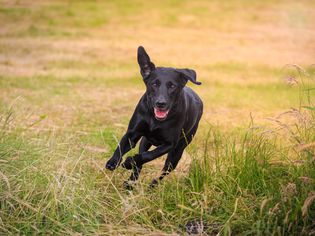

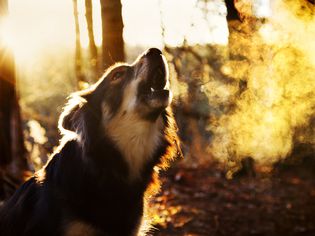

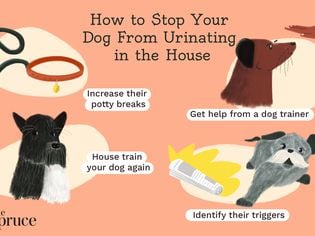

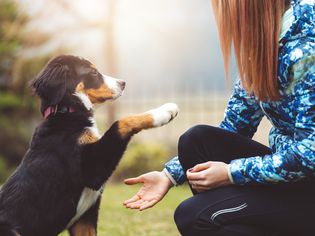
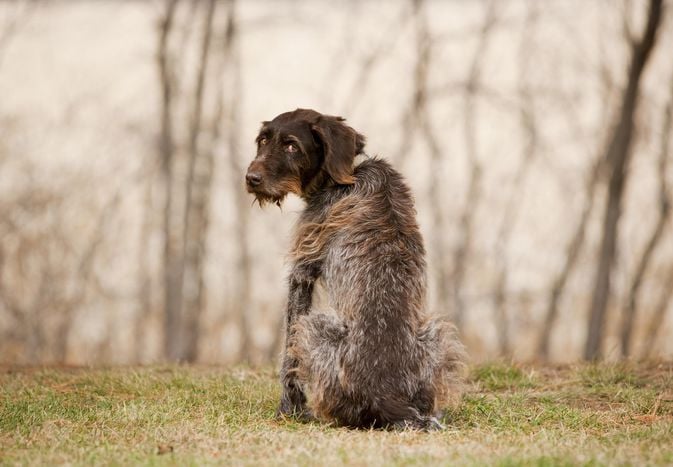
Comments on " Social Anxiety in Dogs" :